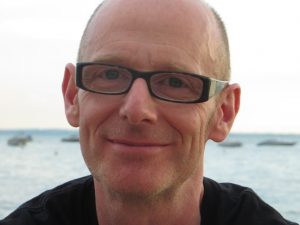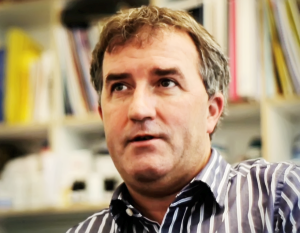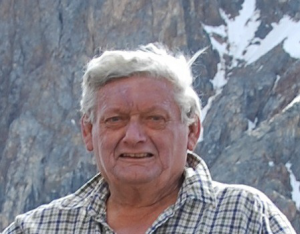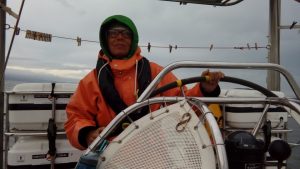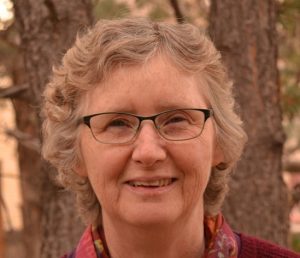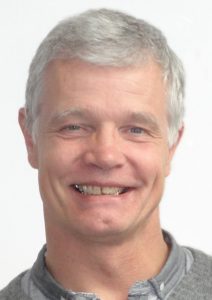Nuclear Fusion: the Science, Technology, and Materials
Monday 26th November 2018
Speaker: Paul Barron, School of Materials, University of Manchester

Nuclear fusion could be the future of sustainable electrical power generation. This talk looks at the science and technology behind this complex process and will update us with the latest research into the materials required to withstand the hostile conditions faced inside a fusion reactor.

Proving Einstein Right
Monday 22nd October 2018
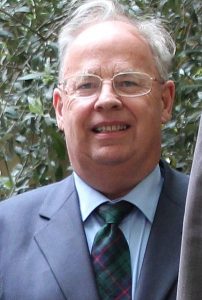
Speaker: Professor Ian Morison, Jodrell Bank Observatory and Manchester University
A gentle introduction to Einstein’s theories and how for over a century astronomers, including those at Jodrell Bank, have been testing them to the limit. The recent detection of gravity waves has further reinforced the theories even though we know that these theories must break down at the heart of a black hole.

Made to be measured: The revolutions in analytical science for the real time analysis of the human body
Monday 24th September 2018
Speaker: Dr Tony Bristow, AstraZeneca, Macclesfield
Analytical science has made an enormous impact on the understanding of the biological and chemical processes within the human body. This presentation will describe some of the most exciting developments in real time measurement of the human body. From cancer diagnosis by mass spectrometry to real time monitoring of key clinical analytes using smart phone based devices, this incredibly exciting science will be described. However, this does raise a final question. Will we be making everybody a home analytical scientist and what could be the implications?

Lowering Cholesterol Levels Damages Health
Monday 23rd July 2018
Speaker: Dr Malcolm Kendrick, General Practitioner and Author
We are told that a high cholesterol level is dangerous and damaging. However, low cholesterol levels are associated with early death and a falling cholesterol level is particularly dangerous.

What Happens To My Blood Sample?
Monday 25th June 2018
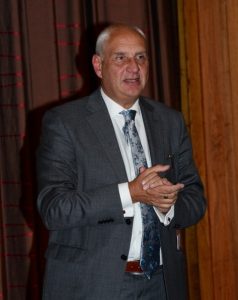
Speaker: Dr Ian D Watson, formerly Clinical Director and Consultant Biochemist, University Hospital Aintree, Liverpool
Nearly everyone has had blood taken at some time and after a period of time your doctor will comment on the results to you, but where did the sample go and what happened to it? I will describe that journey and how we ensure the right result goes to the right patient at the right time.

The Rapidly Changing Arctic: Local And Global Consequences
Monday 28th May 2018
Speaker: Professor Terry V Callaghan CMG
The Arctic’s climate is changing rapidly. This impacts the frozen landscape and sea ice which affects ecosystems and the communities depending on them. However, these changes also affect global processes.

Nuclear Energy in the UK – Current Position and Future Prospects
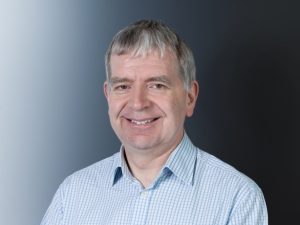
Monday 23rd April 2018
Speaker: Adrian Bull MBE, Director of External Relations, National Nuclear Laboratory, Warrington
This talk will look at how the UK nuclear industry reached its current situation, due to a unique mixture of factors including technology, environmental concerns, politics and public opinion. It will also consider what the prospects are for nuclear as Britain goes forward into the future.

Researching Micro Plastics in UK Coastal Waters
Monday 26th March 2018
Speaker: Deborah Maw
In 2017, twenty nine women took part in a four-week sail around the UK taking samples of UK waters for analysis of micro plastics and visiting the four capital cities to do outreach work.

Exploring the Solar System with Space Rocks
Monday 26th February 2018
Speaker: Dr Rhian Jones, School of Earth and Environmental Sciences, University of Manchester
Rocks from space, called meteorites, come from asteroids, the Moon, and Mars. I will talk about the scientific value of meteorites, from studies of the formation of the Solar System to volcanic activity on other planets.

Of Flies and Men: How Tiny Insects Changed the World of Biology
Monday 22nd January 2018
Speaker:
Andreas Prokop, Professor for Cellular & Developmental
Neurobiology, Faculty of Life Sciences, University of Manchester
Ten researchers have been awarded the Nobel Prize in Medicine & Physiology for discoveries made in tiny fruit flies. We will explore the history and logic behind this surprising fact.
Drosophila has remained at the forefront of biological research for over a century. Drosophila researchers have made essential contributions to our knowledge of biology and made Drosophila one of the best understood organisms.
For more information, here are some links:
http://www.flyfacility.manchester.ac.uk/forthepublic https://droso4schools.wordpress.com/why-fly

